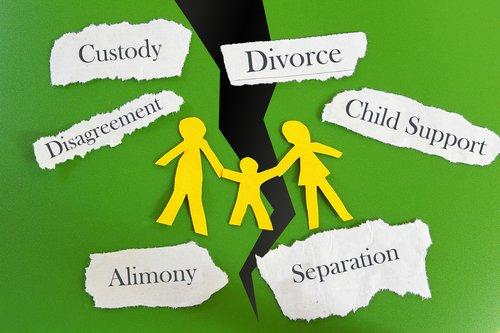What is the Difference between Separation and Legal Separation?
 Separating from your spouse on a trial basis, or longer, is different from a legal separation. There are different reasons couples decide to separate, but you should consider if you want a separation or legal separation arrangement. Many couples choose to separate without having a written document in place and continue to disagree about parenting, custody, visitation, and property division. Speaking to a legal separation attorney can help couples come to an agreement on terms of the separation.
Separating from your spouse on a trial basis, or longer, is different from a legal separation. There are different reasons couples decide to separate, but you should consider if you want a separation or legal separation arrangement. Many couples choose to separate without having a written document in place and continue to disagree about parenting, custody, visitation, and property division. Speaking to a legal separation attorney can help couples come to an agreement on terms of the separation.
What Does Separation and Legal Separation Mean?
A separation is when a couple decides to live apart while they are still married. They may be trying to work on their marriage, see how they do living apart, or are just unsure as to if they want a divorce or not. In the case of a separation, one party may not support the other or may try to take martial assets they are not entitled to.
A legal separation is when one spouse files a petition, similar to a dissolution of marriage petition, and requests the court to grant a legal separation. They may file a legal separation petition because they want the other party to pay child support and/or maintenance, alimony, payments or to set up custody and visitation rights. A legal separation is also sought by couples who do not believe in divorce for religious reasons, but do not want to live together anymore.
What is the Difference?
In a separation and legal separation, both parties are still considered married. Couples are not allowed to marry someone else unless a dissolution of marriage petition is filed and granted by the court. If a couple separates, they do not need to file any paperwork with the court. They can decide to live apart and work on their marriage without having decisions about custody and property division made by the court.
To file for a legal separation, the petitioner cannot be the party at fault, meaning they cannot be the party that left the marriage. Having a legal separation does not automatically lead to a divorce. It also does not mean one of the parties cannot file for a dissolution of marriage later on. In a legal separation, the petitioner can file for maintenance payments, child support, custody agreements, and for division of property. The process proceeds like a divorce, except the couple is still legally married. All debt and assets accrued after the legal separation are not considered marital property or assets.
Separating from a spouse is not an easy decision. Deciding whether to proceed with getting a legal separation,is something you should discuss with an experienced Wheaton divorce attorney lawyer. Contact the law offices of Stock, Carlson, Flynn and McGrath, LLC at 630-665-2500 to speak to an attorney.
 630-665-2500
630-665-2500







